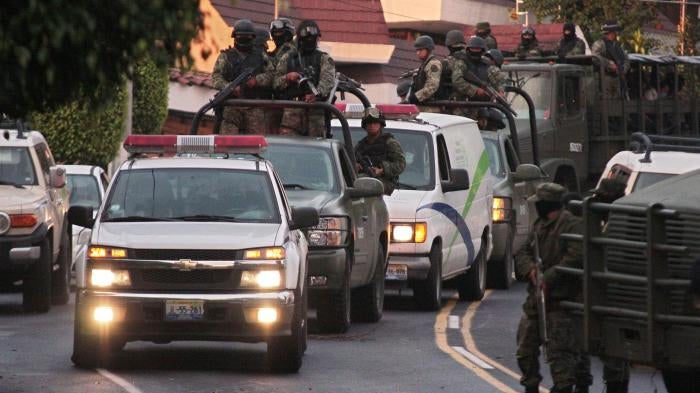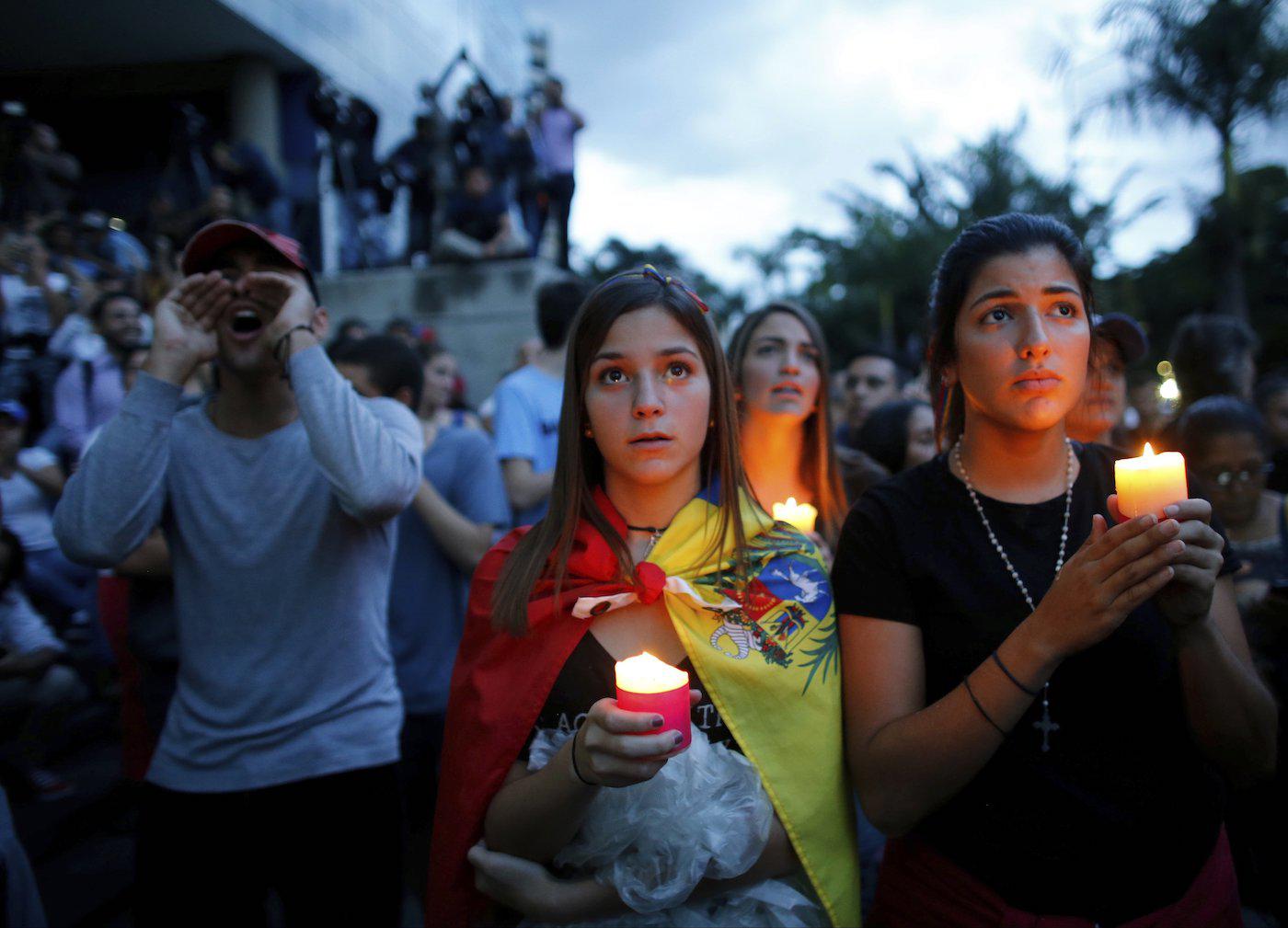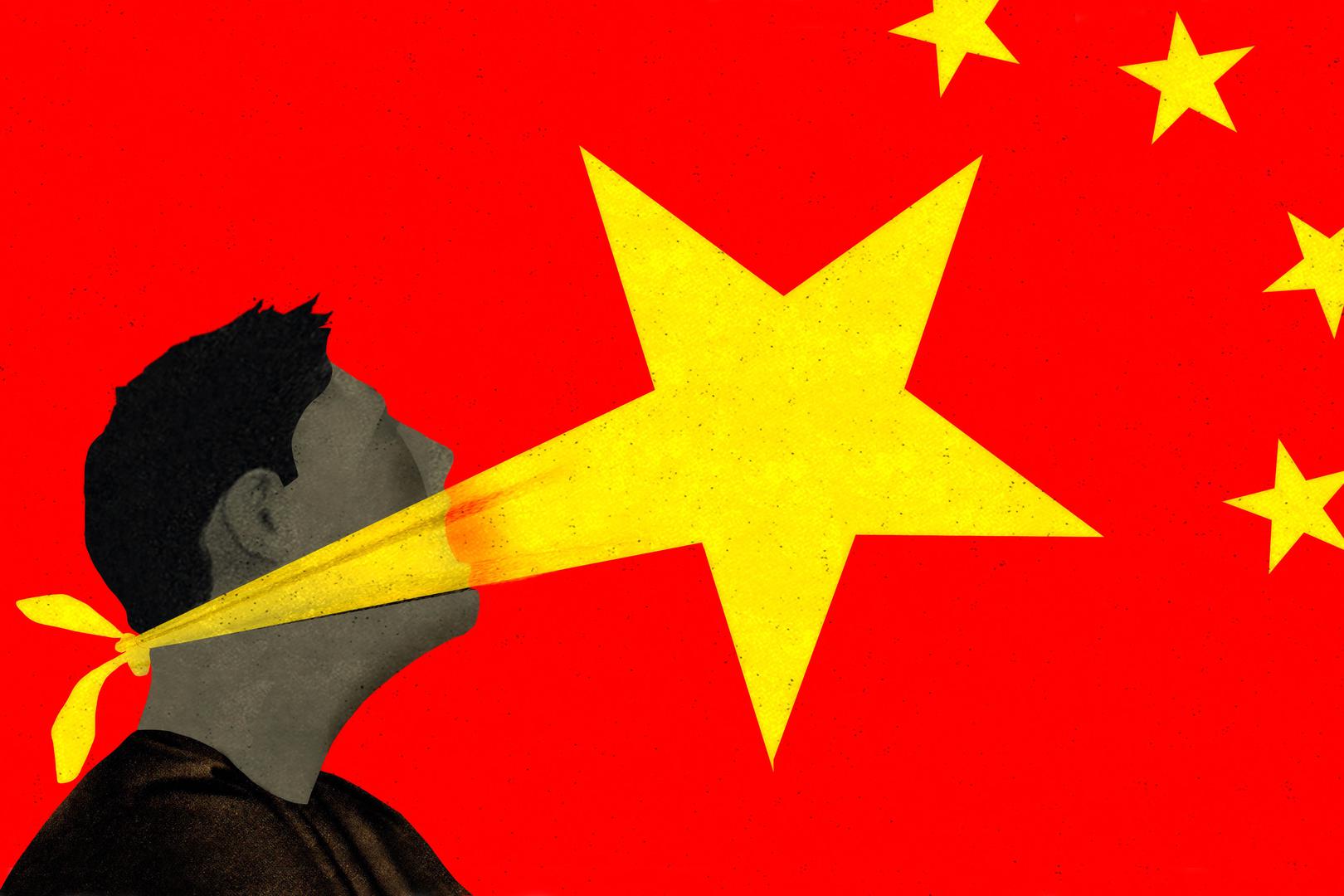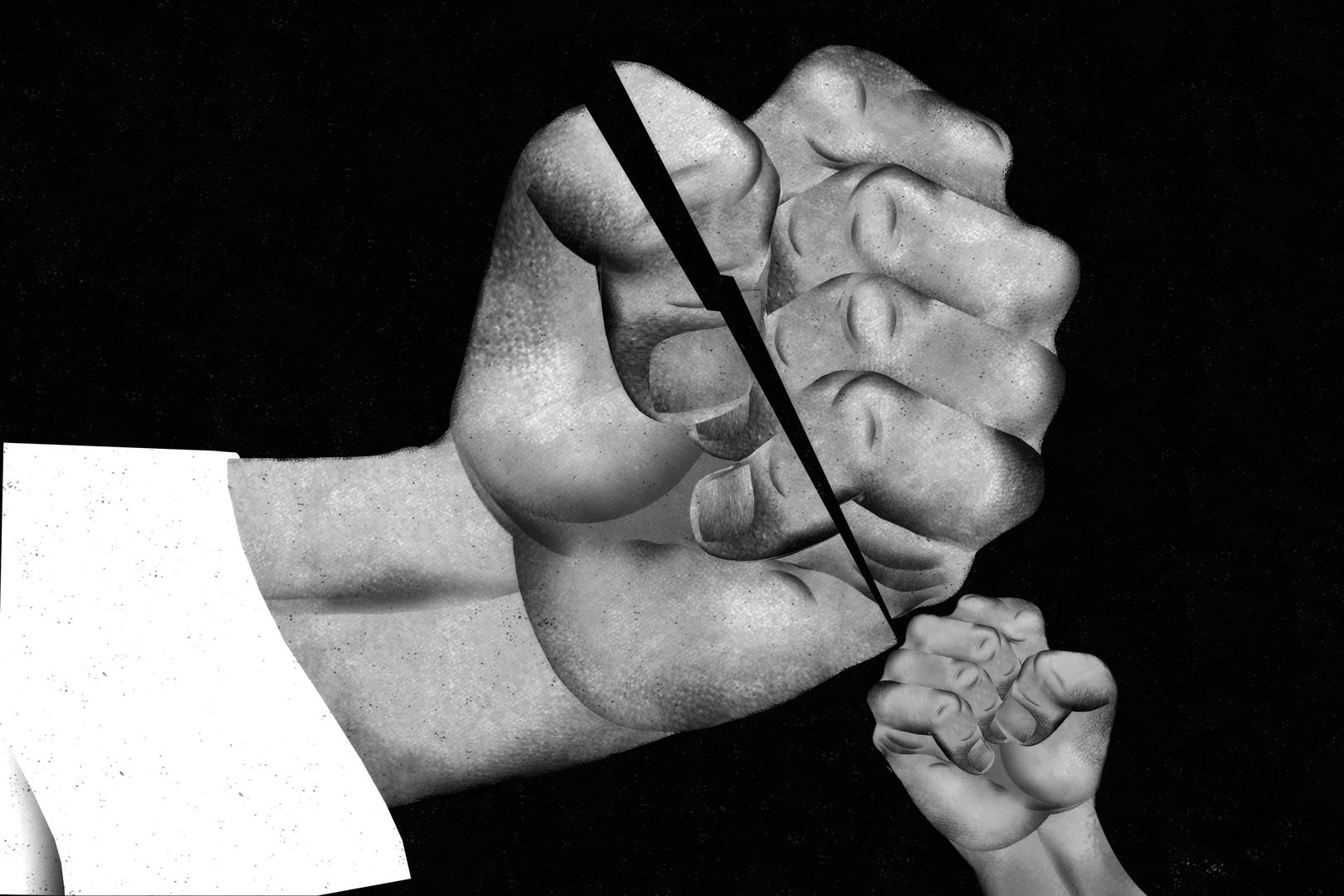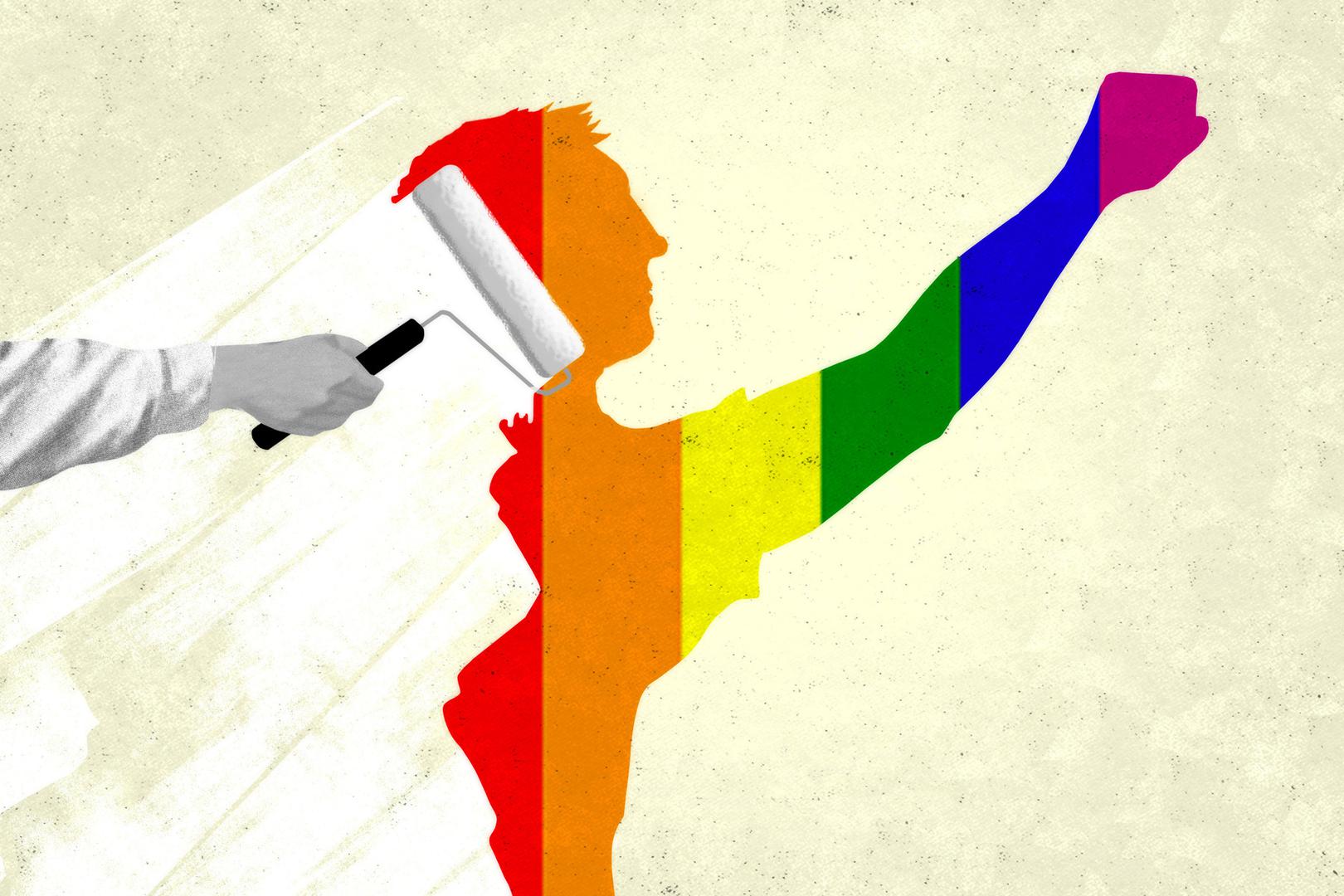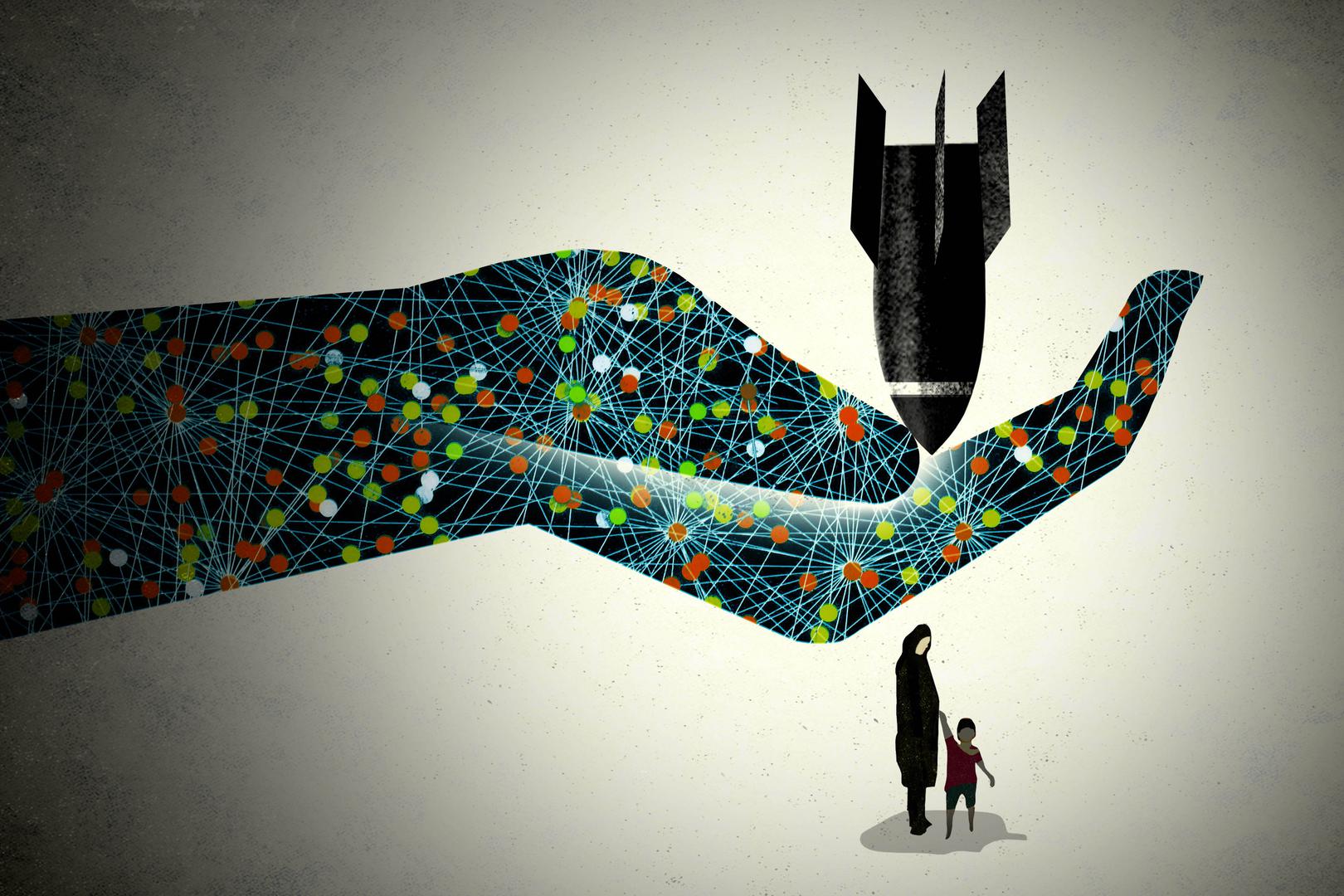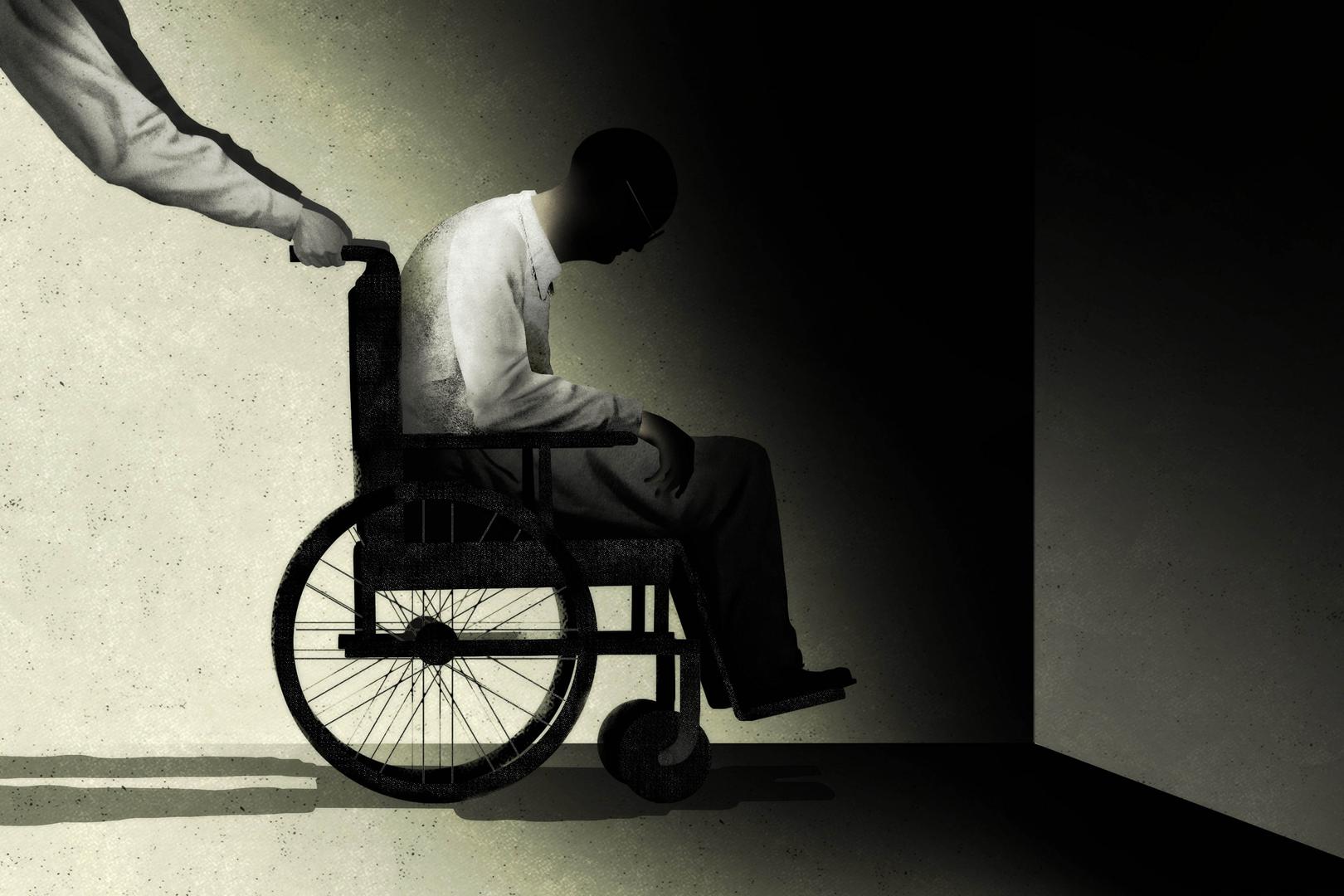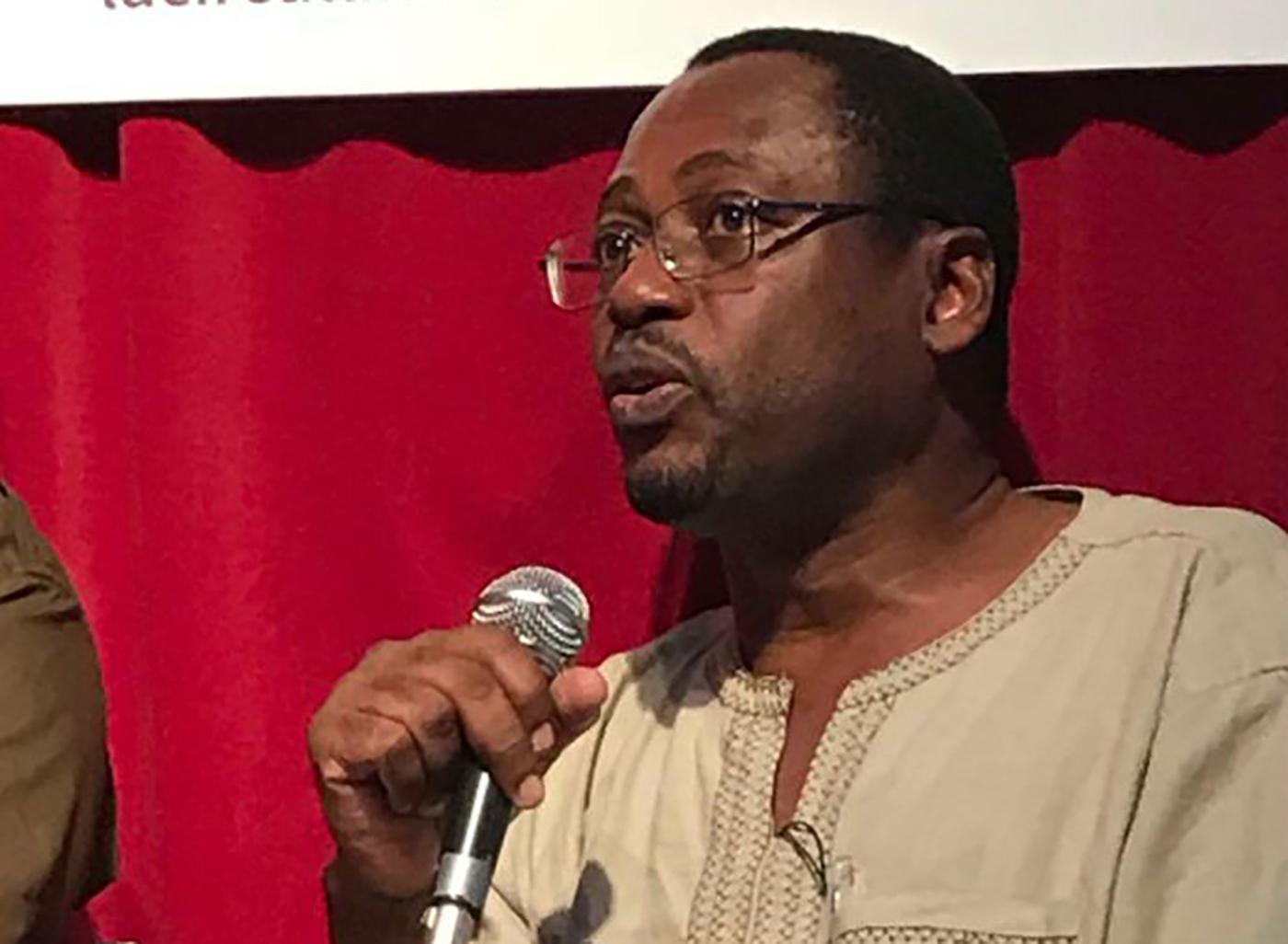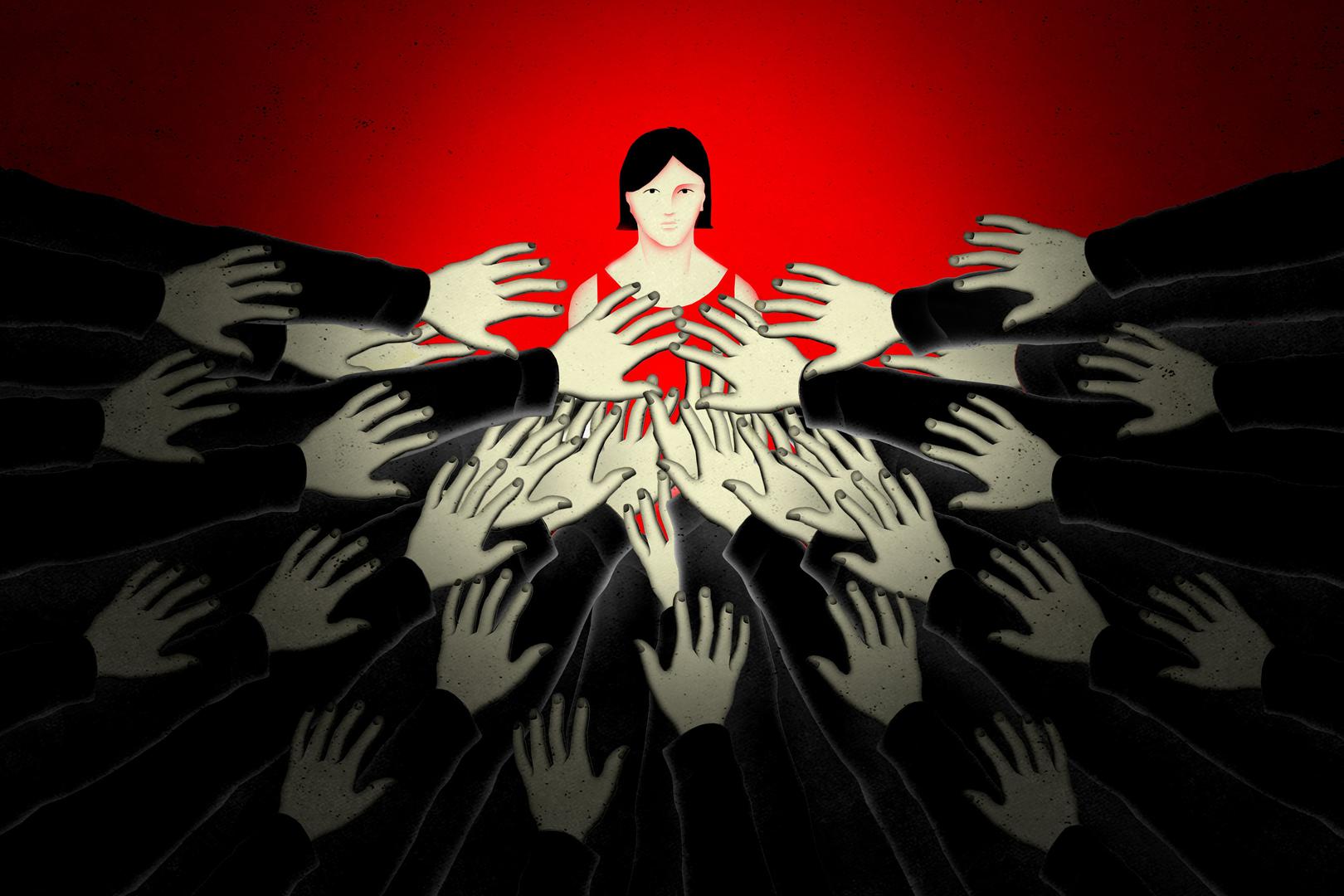President Andrés Manuel López Obrador, who took office in December 2018, inherited a human rights catastrophe rooted in extreme violence by organized crime and widespread abuse by the military, police, and prosecutors. The administration of his predecessor, former President Enrique Peña Nieto (2012-2018), made little progress in improving human rights practices. Security forces continued to commit extrajudicial killings, enforced disappearances, and torture. Impunity for these crimes remained the norm. Laws enacted in 2017 could help address the problems of torture and disappearances, but implementation has lagged.
Criminal Justice System
The criminal justice system routinely fails to provide justice to victims of violent crimes and human rights violations. Causes of failure include corruption, inadequate training and resources, and complicity of prosecutors and public defenders with criminals and abusive officials.
In 2013, Mexico enacted a federal victims law intended to ensure justice, protection, and reparations for crime victims. Reforms aimed at reducing bureaucracy and improving access to reparations were approved in January 2017. However, victims report that bureaucratic delays continue to hinder access.
Military Abuses and Impunity
Mexico has relied heavily on the military to fight drug-related violence and organized crime, leading to widespread human rights violations by military personnel. Between December 2012 and January 2018, the National Human Rights Commission (CNDH) received more than 4,600 complaints regarding alleged abuses by the military.
In 2014, Congress reformed the Code of Military Justice to require that abuses committed by members of the military against civilians be handled by the civilian criminal justice system rather than the military system, which had a history of failing to hold members of the military accountable for abuses. However, the pursuit of justice for these violations remains elusive. An investigation by the Washington Office on Latin America (WOLA) found that civilian prosecutors had opened 505 investigations between 2012 and 2016 into crimes and human rights violations committed by soldiers but only obtained 16 convictions.
In November 2018, the Supreme Court struck down the Interior Security Law, which had entered into force in December 2017, because it “[normalized] the use of the armed forces in public security issues,” which the court ruled unconstitutional and in violation of Mexico’s international obligations. The law would have granted the armed forces broad authority to engage in public security operations, including the ability to operate without effective civilian control, and would have deemed information generated by these “internal security” activities to be matters of “national security,” thereby limiting public access. However, the same week of that ruling, López Obrador announced that his government would seek to change the constitution to create a military-controlled National Guard to preserve public security.
Torture
Torture is widely practiced in Mexico to obtain confessions and extract information. It is most frequently applied in the period between when victims are detained, often arbitrarily, and when they are handed over to civilian prosecutors—a period in which they are often held incommunicado at military bases or illegal detention sites.
According to a survey of more than 64,000 people incarcerated in 338 Mexican prisons located throughout the country in 2016, performed by Mexico’s national statistics office (INEGI), 64 percent of the prison population reported having suffered some type of physical violence at the time of their arrest: 19 percent reported receiving electrical shocks; 36 percent being choked, held underwater, or smothered; and 59 percent being hit or kicked. In addition, 28 percent reported that they were threatened that their family would be harmed.
Between December 2012 and January 2018, the Attorney General’s Office opened more than 9,000 investigations into torture. However, torturers are rarely brought to justice.
Investigations suffer from serious shortcomings. In March, the Mexican Office of the UN High Commissioner for Human Rights published an investigation that stated it had found “solid grounds to conclude” that at least 34 detainees had been tortured during the investigation of the 2014 disappearance of 43 students from Ayotzinapa. In May, a federal judge established that prosecutors had not adequately investigated evidence of torture of detainees in the Ayotzinapa case. At least 10 government agencies filed appeals against the ruling, which, at time of writing, remained pending.
In April 2017, the Mexican legislature approved the Law to Investigate, Prevent, and Sanction Torture, aimed at curbing torture and excluding testimony obtained through torture from judicial proceedings. At time of writing, implementation of the law remained pending. Although the law required the Attorney General’s Office to have the infrastructure for a national torture registry in place by December 2017, it had not done so as of August 2018.
Enforced Disappearances
Since 2006, enforced disappearances by security forces have been a widespread problem. Criminal organizations have also been responsible for many disappearances.
In October 2018, the interior minister stated that the whereabouts of more than 37,400 people who had gone missing since 2006 remain unknown. According to the CNDH, more than 3,900 bodies have been found in over 1,300 clandestine graves since 2007.
Prosecutors and police routinely neglect to take basic investigative steps to identify those responsible for enforced disappearances, often telling the missing people’s families to investigate on their own. Since 2013, the Attorney General’s Office has had a specialized office to investigate and prosecute disappearances. As of August 2018, it had opened 1,255 investigations but only pressed charges in 11 cases. It did not report any convictions.
In November 2017, Congress passed a law on disappearances that established a single nationwide definition for the crime and mandated the creation of entities to facilitate the investigation and prosecution of disappearances. These include the National Search Commission (CNB) that was created in March 2018 to coordinate search efforts in the field, and the National Search System (SNB), established in October 2018 to coordinate state institutions involved in the search for the disappeared.
However, at time of writing these entities were not yet fully operational. In July 2018, the Citizen Council of the National Search System, an advisory body created by the disappearances law, reported that the CNB was not receiving the resources it needs to fulfill its mandate. The council also criticized the lack of coordination between institutions, and expressed its concern that most states lag behind in implementing the law. Only 13 out of 32 states had created a specialized prosecutor’s office and only nine out of 32 states had local search commissions or offices, even though the law mandated the creation of those entities by February and April 2018, respectively.
Victims’ families have repeatedly denounced serious shortcomings regarding the identification and storage of bodies. In September, media reported that in Jalisco state, neighbors complained about smells of decaying bodies and leaks of blood after the state prosecutor’s office parked a refrigeration trailer packed with unidentified bodies in their neighborhood because the morgue was full. The former director of forensic services stated that authorities had used refrigeration trailers for at least two years to store more than 250 bodies. The human rights prosecutor asserted that authorities had taken proper information and samples to enable identification of only 60 bodies.
In May 2018, the UN High Commissioner for Human Rights denounced a “wave of enforced disappearances” of at least 23 people in Nuevo Laredo, Tamaulipas state, between February and May. The Executive Commission for Assistance to Victims (CEAV) indicated that Navy personnel were likely involved in the disappearances. However, prosecutors conducted limited search efforts, and only after a federal judge—acting on an appeal from victims’ families—ordered them to do so. At time of writing, the judge had imposed 10 fines on the Navy and five on the Attorney General’s Office because they failed to respond to her inquiries.
Extrajudicial Killings
Unlawful killings of civilians by Mexican security forces “take place at an alarmingly high rate” amid an atmosphere of “systematic and endemic impunity,” according to the United Nations special rapporteur on extrajudicial, summary, or arbitrary executions in 2014.
However, there is no reliable information about the number of extrajudicial executions. The vast majority of homicides are never prosecuted. Government authorities only register the number of homicides and not the circumstances in which these took place. The Defense Department stopped registering the numbers of civilians it killed as of 2014.
Attacks on Journalists
Journalists, particularly those who report on crime or criticize officials, often face harassment and attack by both government authorities and criminal groups. Many journalists are driven to self-censorship as a result. A 2017 study by researchers from the University of Miami and the Iberoamerican University in Mexico City showed that almost 70 percent of journalists said they had engaged in self-censorship out of fear for their personal safety.
Between January 2000 and August 2018, 110 journalists were killed and 25 disappeared, according to the Attorney General’s Office. The CNDH put that number even higher: it reported 148 journalists killed since 2000 and 21 disappeared since 2005. Media reports indicated that eight journalists were killed between January and September 2018.
In 2012, the federal government established the National Protection Mechanism to issue and coordinate the implementation of protective measures for journalists and human rights defenders under threat. Between October 2012 and July 2018, 418 journalists requested and 357 were authorized to receive protection measures. However, protection has been slow to arrive and, in some cases, has been insufficient. In August 2018, the CNDH and the Mexican Office of the UN High Commissioner for Human Rights expressed their concern about the lack of resources for the mechanism.
Authorities routinely fail to investigate crimes against journalists adequately, often preemptively ruling out their profession as a motive. The CNDH reported in 2016 that 90 percent of crimes against journalists in Mexico since 2000 have gone unpunished, including 82 percent of killings and 100 percent of disappearances. Since its creation in July 2010, the federal Special Prosecutor’s Office opened more than 1,000 investigations into crimes against journalists. As of August 2018, it brought charges in 152 cases and obtained only seven convictions, of which just one was for homicide.
Women’s and Girls’ Rights
Mexican laws do not adequately protect women and girls against domestic and sexual violence. Some provisions, including those that make the severity of punishments for some sexual offenses contingent upon the “chastity” of the victim, contradict international standards.
Eighteen of Mexico’s 32 states establish in their constitutions that there is a right to life from the moment of conception. Although the Supreme Court ruled in 2010 that all states must provide emergency contraception and access to abortion for rape victims, many women and girls face serious barriers accessing abortions after sexual violence, including official intimidation. According to a study by the Group for Information about Elective Reproduction (GIRE), between 2007 and 2016, Mexico convicted 98 women for abortions.
In July, the UN Committee on the Elimination of Discrimination against Women urged the state to take measures to combat the discrimination of women—including in the workplace—and to prevent gender-based violence and the trafficking of women and girls.
Migrants and Asylum Seekers
Migrants traveling through Mexico are frequently subject to abuses and human rights violations. In some of these cases there are allegations that government authorities are involved. Between December 2012 and January 2018, the CNDH received more than 3,000 complaints of abuses against migrants. And a 2017 WOLA report, citing official numbers, indicated that there had been 5,294 reports of crimes against migrants between 2014 and 2016 in five states alone.
It is very likely that such crimes are severely underreported due to fear of authorities, of reprisals, and for practical reasons: the prosecutor’s offices where reports can be made tend to be far from the places where crimes are committed.
According to government statistics, apprehensions of unaccompanied children from the Northern Triangle countries of El Salvador, Guatemala, and Honduras were significantly lower in 2017 and 2018 compared to 2016, and asylum recognition rates for unaccompanied children from these countries have risen in recent years. Even so, less than 1 percent of those apprehended each year received international protection, far short of the likely need: the UN High Commissioner for Refugees (UNHCR) has estimated that as many as half of the unaccompanied children who arrive in Mexico from the Northern Triangle have plausible asylum claims that should be seriously considered.
Sexual Orientation and Gender Identity
Mexico City and 11 additional states have legalized same-sex marriage. In other states, same-sex couples must file a constitutional challenge (amparo) to be allowed to marry; a 2015 Supreme Court decision holding that the definition of marriage as being only between a man and a woman violates the constitution, means that rulings in such cases should be in their favor. In September 2018, a same-sex couple in Michoacán was able to obtain a birth certificate for their child on which the two mothers were listed as the parents.
In 2016, President Peña Nieto instructed the Secretariat of Education to include the topic of sexual diversity in its new educational materials, with which it complied in 2018.
In October 2018, the Supreme Court ruled in favor of a transgender applicant who sought to change their gender marker through administrative means at the Civil Registry in Veracruz. The ruling, which cited an Inter-American Court on Human Rights advisory opinion on the right to legal gender recognition, suggested the court might uphold transgender rights in an upcoming case that may create binding jurisprudence.
Disability Rights
In its 2014 concluding observations on Mexico, the UN Committee on the Rights of Persons with Disabilities found that, despite new laws and programs protecting the rights of people with disabilities, serious gaps remained, including in access to justice, legal standing, and the right to vote; access to buildings, transportation, and public spaces; violence against women; and education.
Mexico made no progress in implementing the right to legal capacity for persons with disabilities.
In October 2018, the second chamber of Mexico’s Supreme Court ruled that failing to admit a group of children with disabilities to community schools and placing them in separate special schools violated Mexico’s Constitution.
Key International Actors
In September 2017, the UN Committee on Migrant Workers expressed its concern about the “grave irregularities” in the identification of the victims and those responsible for the mass murders of migrants committed between 2010 and 2012 in the states of Nuevo León and Tamaulipas. It also urged the state to guarantee the rights of migrants in transit and called on Mexican authorities to “only use the detention of migrants as a measure of last resort,” to improve conditions of detention, and to “immediately put an end to” the detention of migrant children.
In April 2018, the UN Committee on Economic, Social, and Cultural Rights urged Mexico to improve its protection of human rights defenders, as well as to implement measures to address poverty, inequality, and discrimination, and in July 2018, the UN Committee on the Elimination of Discrimination against Women expressed concern about reports of forced sterilization of women with disabilities in Mexico.
Since 2007, the United States has allocated nearly US$2.9 billion in aid through the Mérida Initiative to help Mexico combat organized crime. In 2015, the US secretary of state withheld $5 million in security aid, saying the State Department could not confirm that Mexico had met the agreement’s human rights criteria, but Mexico has received its full Mérida aid the following years. In 2018, Congress appropriated $145 million for Mérida aid.
